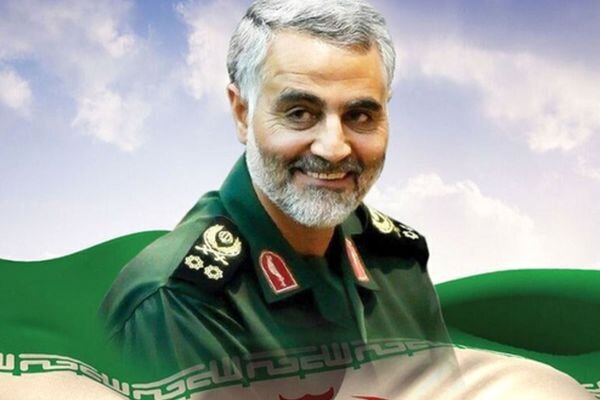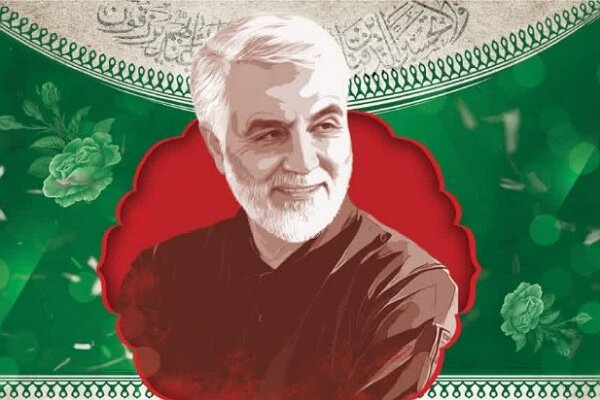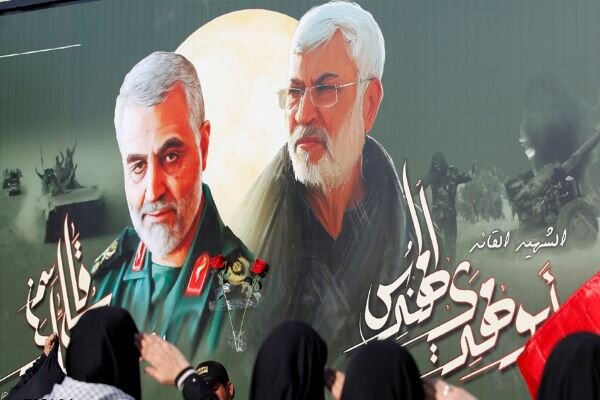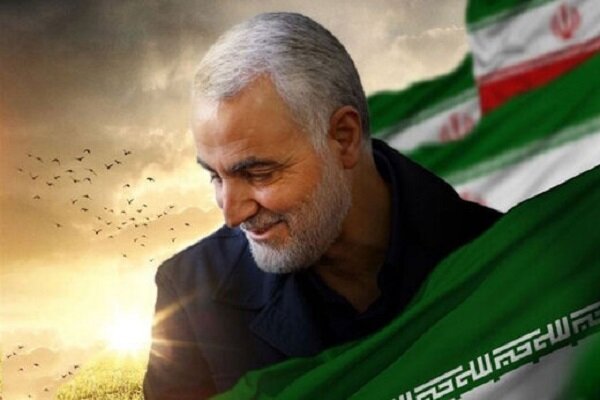Qasem Soleimani was born in 1955 in Iran's southeastern province of Kerman.
Martial Arts and Zurkhaneh sports (a traditional sport in Iran) were the most important activities he pursued as a teenager.
As he said, “Sports had a great impact on my religious morality. One of the most important reasons why I wasn’t pulled into immoral activities was sports despite my youth, particularly traditional sports which have a moral and religious base and principle.”
All these efforts and activities led to him becoming a professional athlete with an agile, muscular body at the age of 21.
He was raised in a poor farmer's family and worked as a construction worker. Soleimani continued his education until high school then worked in Kerman city municipality until the Iranian Islamic Revolution in 1979.
After the success of the Iranian revolution against the Shah, he joined the Islamic Revolutionary Guards Corps in early 1980 which was founded by the order of the Iranian spiritual leader Ayatollah Khomeini in November 1979.
The theory of "regional security"

The theory of “regional security” is one of the most important viewpoints of Martyr Soleimani who developed the theory due to his understanding of western politics and with the purpose of preventing their plot from being fulfilled, Khamenei.ir reported.
On the basis of this theory, the security of West Asian Islamic countries influences and is connected to one another. In other words, insecurity in Syria would undermine Iraq's security and insecurity in Iraq would jeopardize Iranian security.
In order to ensure West Asian security and counteract western plots, Sardar Soleimani developed the Resistance model and molded the fight against extremism and terrorism on the basis of developing the Resistance strategy.
In fact, Hajj Qasem pre-empted the westerners’ plans: they were trying to create discord in the anti-Zionist camp, but Sardar Soleimani united those countries under the axis of Resistance.
Hajj Qasem’s miracle was that he placed seven nationalities – the Syrians, the Lebanese, the Iranians, the Pakistanis, the Afghanis, and the Iraqis – under the umbrella of Resistance.
He shaped the axis of Resistance by benefiting from the native identity and culture of every country, not by imposing the Iranian culture and version on them. Hezbollah with the Lebanese identity, Hashd al-Sha’bi with the Iraqi identity, and the Zaynabiyun, Fatemiun, and Haydariun forces with their own respective national and local identities were created, and then, they achieved growth.

With his regional security theory, Martyr Soleimani made every country sensitive about ensuring their own national security and that of their neighboring countries.
The axis of Resistance foiled the western plot to change the regional geography and to ensure Israel’s security. As an outstanding figure of Resistance and as a symbol of fighting against terrorism, he stayed by the side of Sunni Palestinians in the 51-day war, and in the 33-day war, he defeated the Zionist regime alongside the Shia forces of Hezbollah. While Syria was in the depth of a crisis, he personally rushed to help Bashar Assad and while Baghdad was on the brink of downfall, he passed through the DAESH forces and arrived in Baghdad and led the anti-terrorist operation until he achieved the desired results.
With the help of altruistic and self-sacrificing forces of Resistance, Sardar Soleimani defended the national authority and territorial integrity of regional countries and rekindled hope in the hearts of regional nations by tightening his grip on the Zionist regime and its western and Arab supporters.

During the imposed Iraqi war on Iran, which was launched in 1980 and lasted for eight years, Soleimani gradually became known as an adept commander, leading Iranian troops in numerous battles against invading Ba'ath regime forces.
Later appointed as the chief of the IRGC's expeditionary Quds Force, Soleimani gradually became a forefront figure in Iran's push to assist regional states and allies counter foreign-backed interventions in the region.
As foreign-backed Takfiri outfits reared their heads in recent years, the IRGC commander emerged as a key strategist and ingenious commander leading Iranian military advisers assisting Syrian and Iraqi troops in battles against terrorists.
The general was frequently pictured on the frontlines during anti-terrorism operations from Iraq’s Mosul to Syria’s Aleppo.
In Iraq, at the height of Daesh’s terror campaign, he assisted the Baghdad government in operations to retake the strategic oil-rich city of Tikrit from Daesh in 2015.
In January 2015, the head of Iraq’s Badr Organization credited Tehran and Soleimani with saving Baghdad when Daesh first unleashed its campaign of terror in the neighboring country a year earlier.
The general also took personal command of the battle against Takfiri militants in the Syrian city of Bukamal, located in Dayr al-Zawr Province, in November 2017.

On January 3, 2020, General Qasem Soleimani was assassinated near Baghdad airport alongside al-Muhandis, deputy leader of the Popular Mobilization Forces (PMF), otherwise known as Hashd l-Shaabi.
A top Iranian general was visiting Iraq at the invitation of Iraq’s leader to deliver an Iranian reply to a Saudi message through Iraq. He left Tehran for Baghdad on January 3, 2020, and arrived at midnight at Baghdad airport, where al-Muhandis was waiting to receive him. After a short exchange of greetings, the two men left the airport but as they moved out of the airport in their motorcade, they were targeted with a number of missiles launched by an American drone.
Former United States President Donald Trump had ordered the attack, which faced opposing reactions from inside the United States as well.
In July 2020, a UN expert said the U.S. attack that killed the top Iranian general violated international law.
Reported by Amin Mohammadzadegan Khoyi

























Your Comment